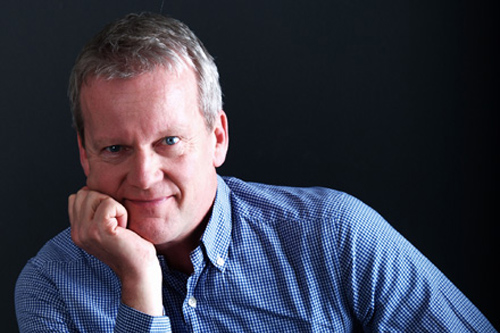
In 2018, Professor Pasi Sahlberg, who was a senior Finnish education ministry official, moved to Australia with his family to take up a position at the University of NSW and the Gonski Institute for Education.
Professor Sahlberg, also a world-renowned education expert, sees great potential in the Australian education system. In 2019, he told the ABC that based on what he had seen after spending a year here, it was his belief that Australia had “one of the best education systems anywhere.”
“It is world class. But only for some children,” he pointed out.
Professor Sahlberg – who has two primary school-aged children and whose wife works in education – says his position to the question how to change Australia’s school system for the better is not only professional, it is also personal.
On 10 March, Professor Sahlberg will join David Gonski AC, Chancellor of the University of NSW and author of the historic Gonski Review, and Denise Loft, Principal of Ulladulla High School in The Opera House’s Utzon Room to discuss how to fix Australian education.
Drawing from his own work in Australia’s education system, experiences working with several governments overseas, and research globally, Professor Sahlberg outlines five things Australian education policymakers can to do improve the schooling system.
“These are not in any particular order, but they are offered as possible real-life solutions,” Professor Sahlberg told The Educator.
“Some of these suggestions require significant investment but the nation as a whole will reap the rewards as promised by available research and evidence.”
5 ways to fix Australian education for the better
- High quality early childhood education and care that is accessible and affordable for all children
Education is a basic human right and this right should be extended to children from birth. Some countries have made high quality early childhood education and care “a children’s right” and guarantee access. Research evidence is very clear about the educational and economic benefits of birth to five early childhood education. James Heckman’s research team has shown that “high-quality, birth-to-five early childhood education provides a higher rate of return than preschool alone”. High quality early childhood education starts from birth, integrates health and nutrition with education and learning, has developmentally focused programs delivered by skilled teachers and professionals, and recognises children’s rights, including the right to play.
- Serve a healthy meal every day for every child
The inconvenient truth is that Australian children fail to meet the necessary daily minimum amount of healthy food, especially vegetables and fruit. Lunchbox culture is widely disliked by everyone, especially parents, schools, and children. One of the easiest ways to enhance student learning in school is to support their wellbeing and health. Nutrition is an essential component of healthy child development and growth. It is not acceptable that hunger affects many children’s ability to concentrate and learn. Evidence suggests that $1 invested in healthy school meals has a $9 return on investment.
- Better control school choices to ensure equity
Australia seems to have stronger faith in education as a marketplace where parental choice is the key mechanism. School choice is not easy to manage but there are many places for Australia to learn from. The conditions under which non-government (or private) schools are publicly funded influence the ways in which school choice impacts the accessibility, quality, and equity of the school system. Drawing on the experiences in other countries, we should take the OECD’s advice to heart. First, where market mechanisms apply, oversight and governance arrangements must be in place to guarantee that every child benefits from accessible, high-quality education. Second, to mitigate risks that school choice has to equity of education, all publicly funded providers should adhere to the same regulations regarding educational and enrolment policies, and compliance with these regulations is monitored.
- Empower teachers through uplifting professionalism, agency, and salaries
Teachers in many parts of Australia are overworked and underpaid. In NSW, teachers’ working weeks are over 50 hours compared to under 40 hours in many comparable countries. Working conditions overall have been declining, and salaries in school education sector are lagging compared to other sectors. Consequently, most school principals experience difficulties filling open teaching positions, with the number of out of field teachers (unqualified) teachers hired increasing, and the proportion of temporary and casual teachers is growing. These are not the features that belong to a world-class education system. Teaching has to be developed as a profession where teachers have more agency to lead their own work, more time to collaborate and co-design learning in their schools, and enjoy competitive, fair salaries that match the value they provide to society.
- Build a shared purpose of education
First, we should delete policies and stop doing things that are not linked to improved teaching and learning in schools. Keeping consequential school accountability, standardised testing, and a narrow focus on academic curriculum in the driver’s seat of education policy is unnecessary and harmful to building the professional trust in teachers and schools. Second, we need bipartisan political consensus on the values and principles upon which school education is based. This includes a shared understanding of the purpose of education and how it serves to create a stronger national sense of “common good”. All high-performing education systems have succeeded not because one side won an ideological battle but because of a binding social contract. We need political will to honour earlier commitments (Alice Springs (Mparntwe) Declaration and those that preceded it) and professional skill to transform education administration so that it relies more on the expertise of schools and their communities.


